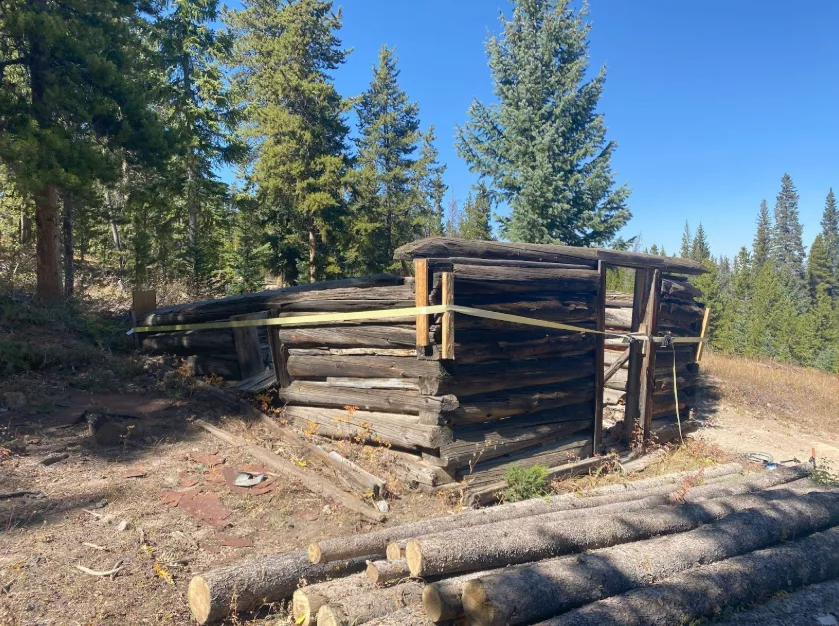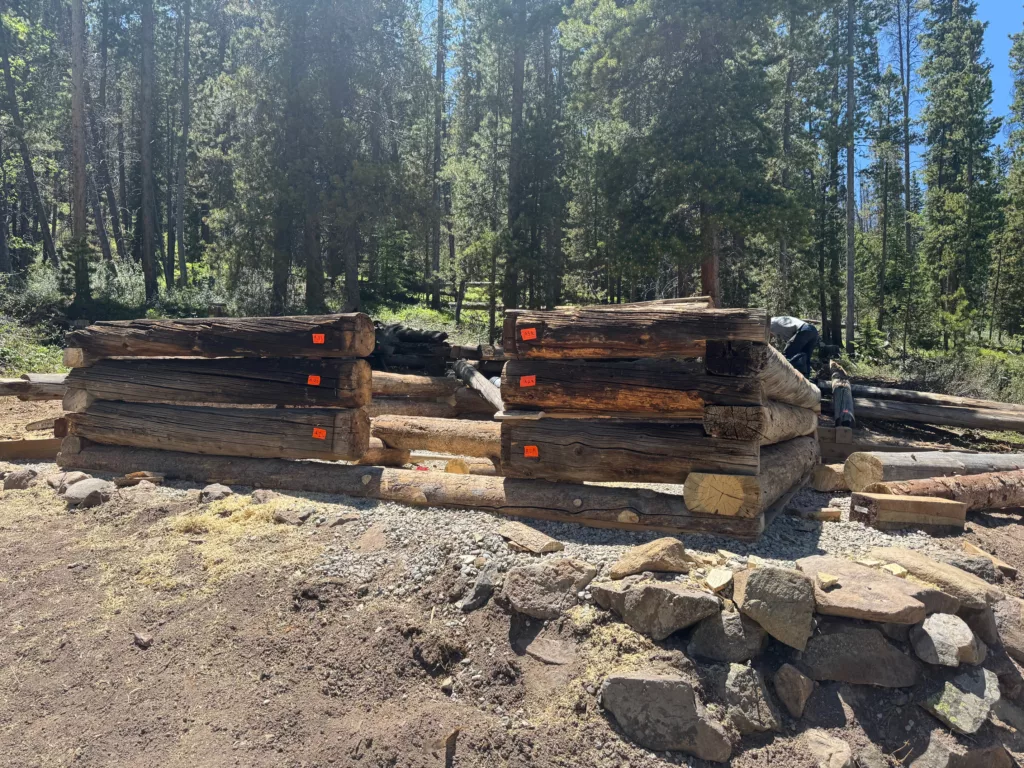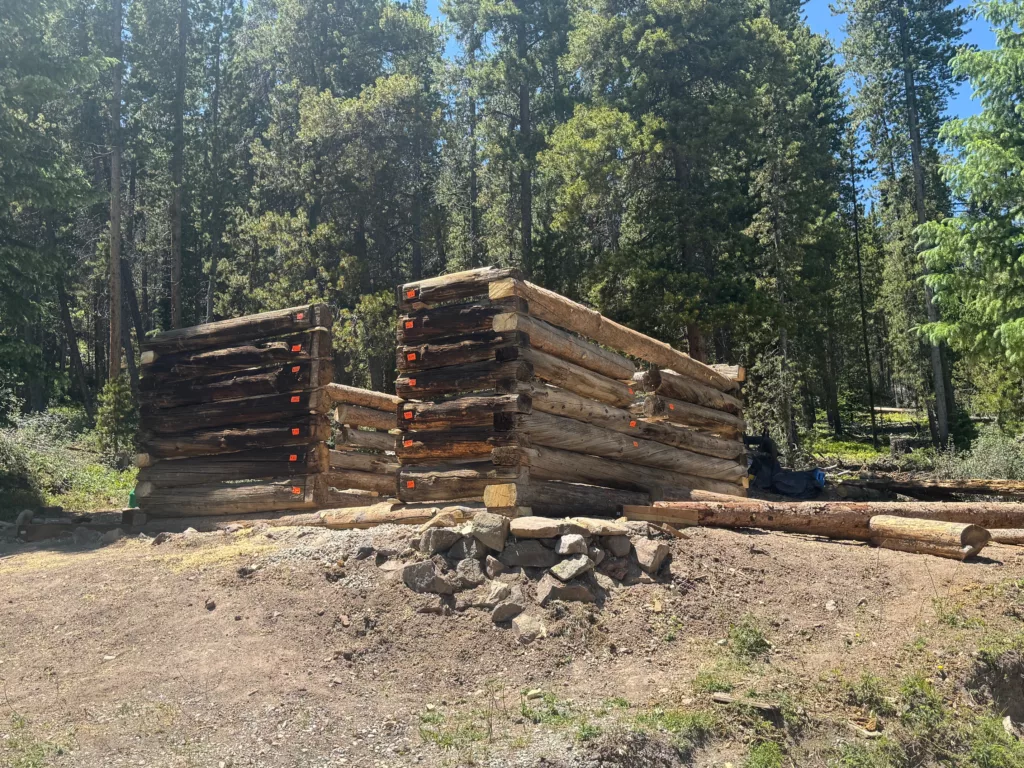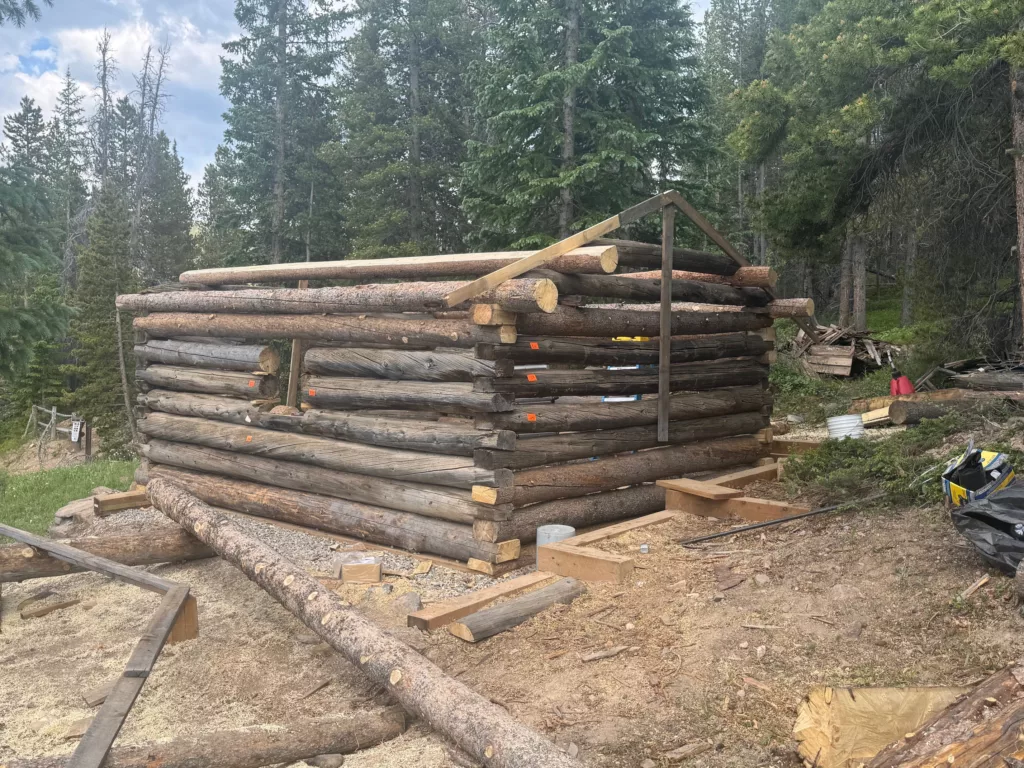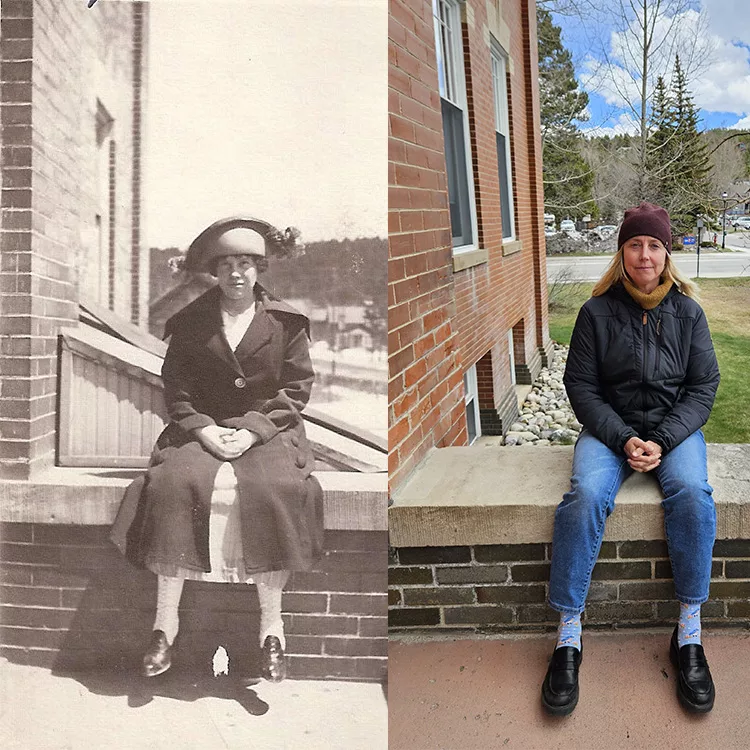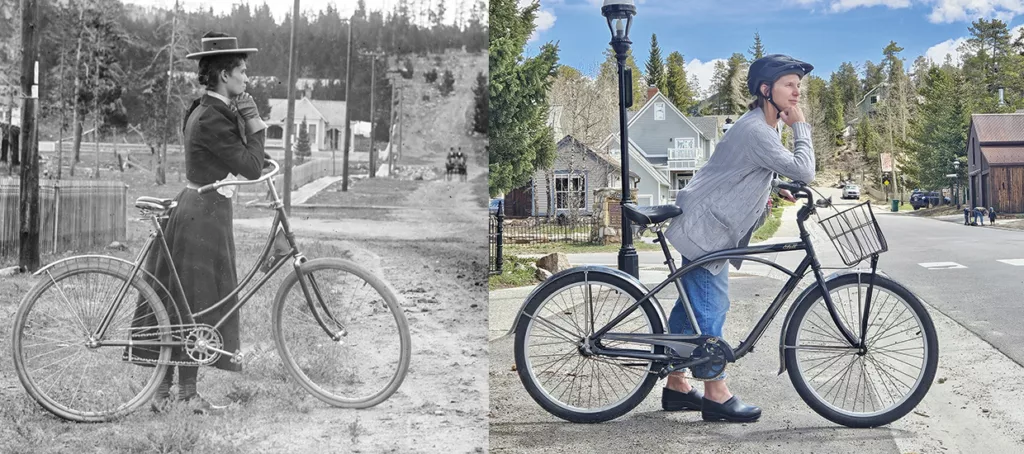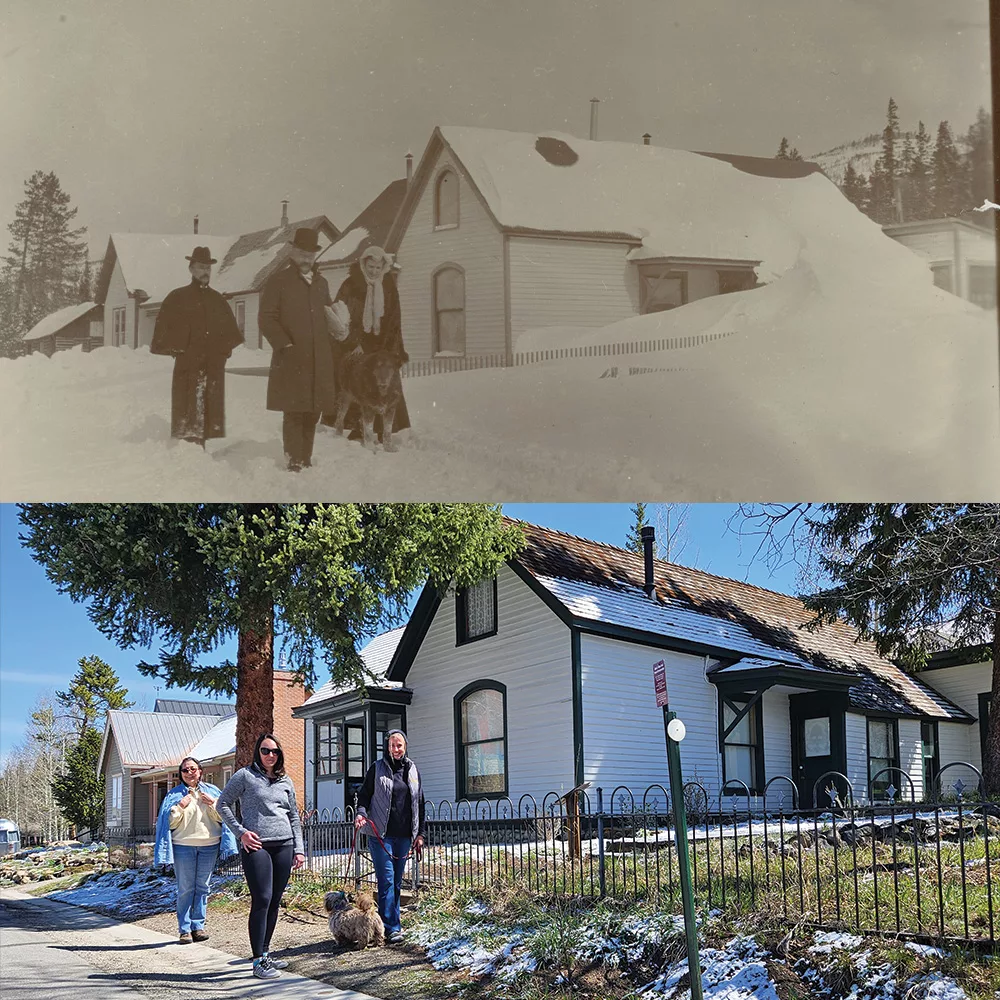Preservation: Current Projects
For more information about any of our preservation and interpretation projects, please email us at larissa@breckhistory.org
Preston cabins
Sometimes preservation work happens one log at a time! Cortright Enterprises is currently helping us with this Lincoln Logs style preservation project at the Preston town site. After disassembling this cabin and regrading the area to improve drainage, the cabin is being rebuilt, log by log. This project began in June 2025 and will include adding a new corrugated steel roof.
The Briggle House
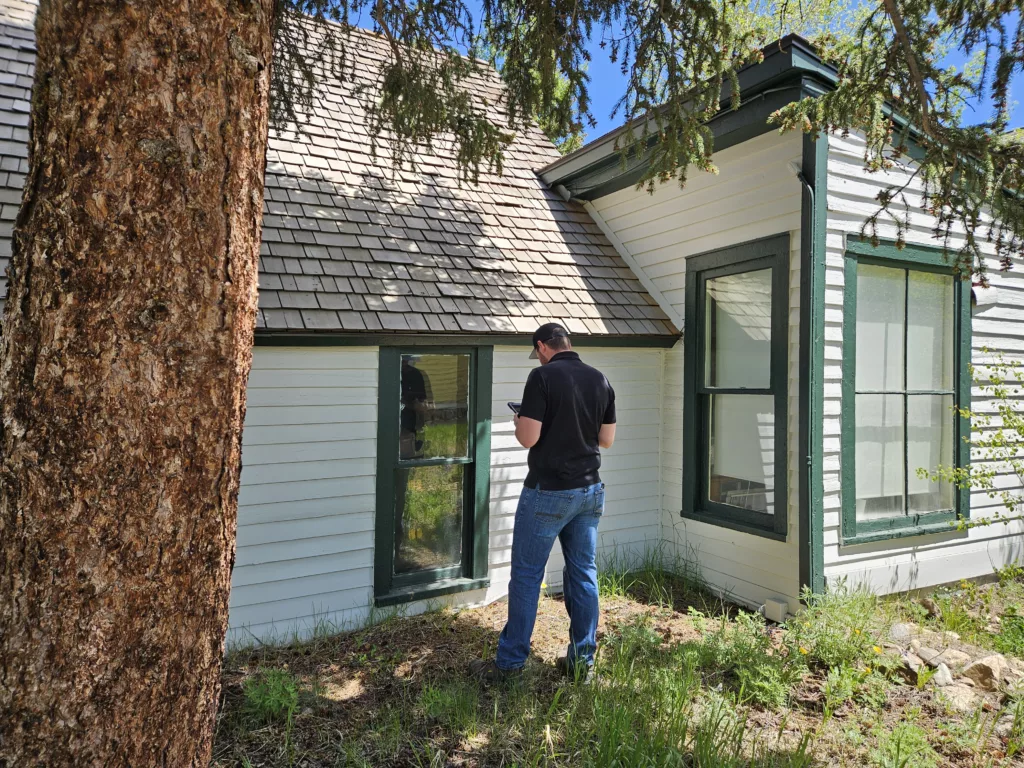
A little log cabin from 1886 was purchased by the Briggle’s in 1898 and immediately expanded to one of the biggest and finest homes in Breckenridge. After years of private ownership, the Town of Breckenridge bought the house and put it under a conservation easement. The building recently went through a conditions assessment with Walker Consultants. Breckenridge History is currently working on interior projects including plumbing and electrical work. Once this work is complete, the house will be used for special programs for the nonprofit.
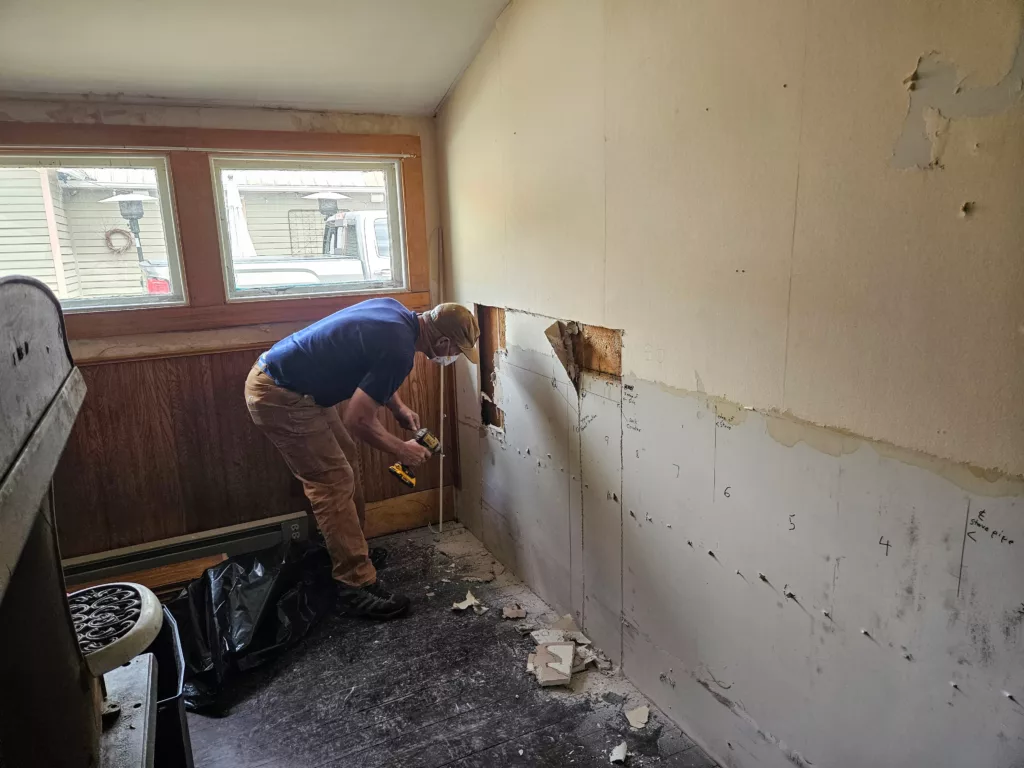
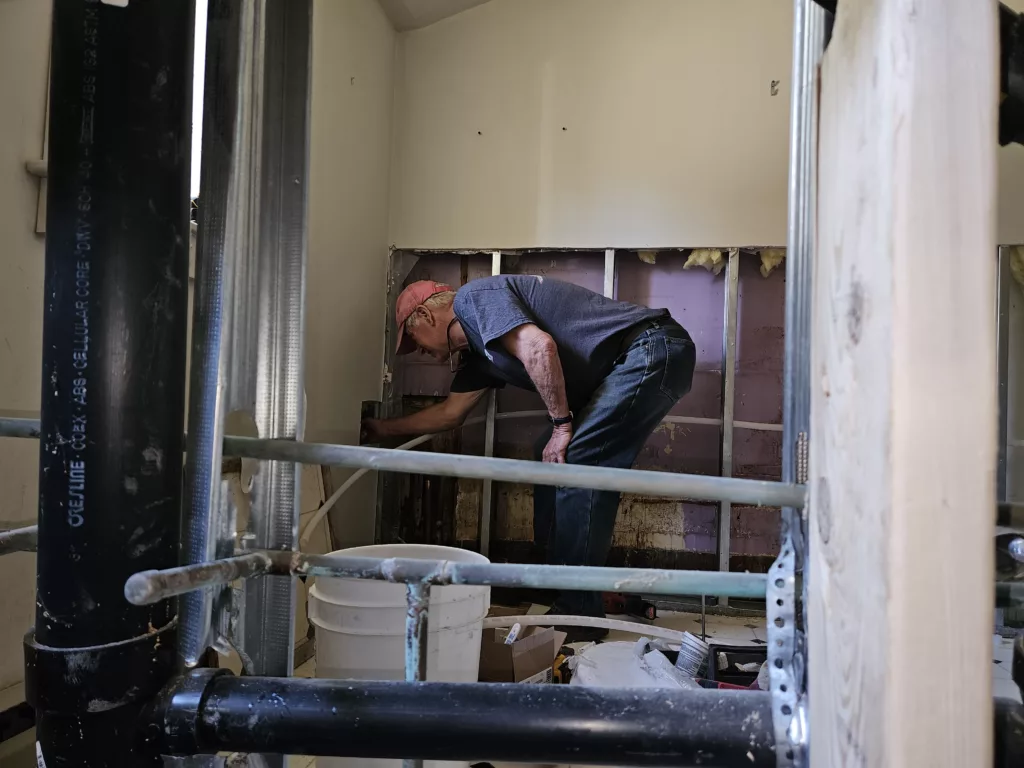
#PreserveBreck
May is National Preservation Month, and we want your help in bringing Breckenridge’s history to life. Re-create any of the historical photos displayed below to be featured on our website and social media. You will also be eligible for prizes for your photo re-creations! Use #PreserveBreck on social media or email your photos to info@breckhistory.org to submit! Photos from the Breckenridge History Archives.
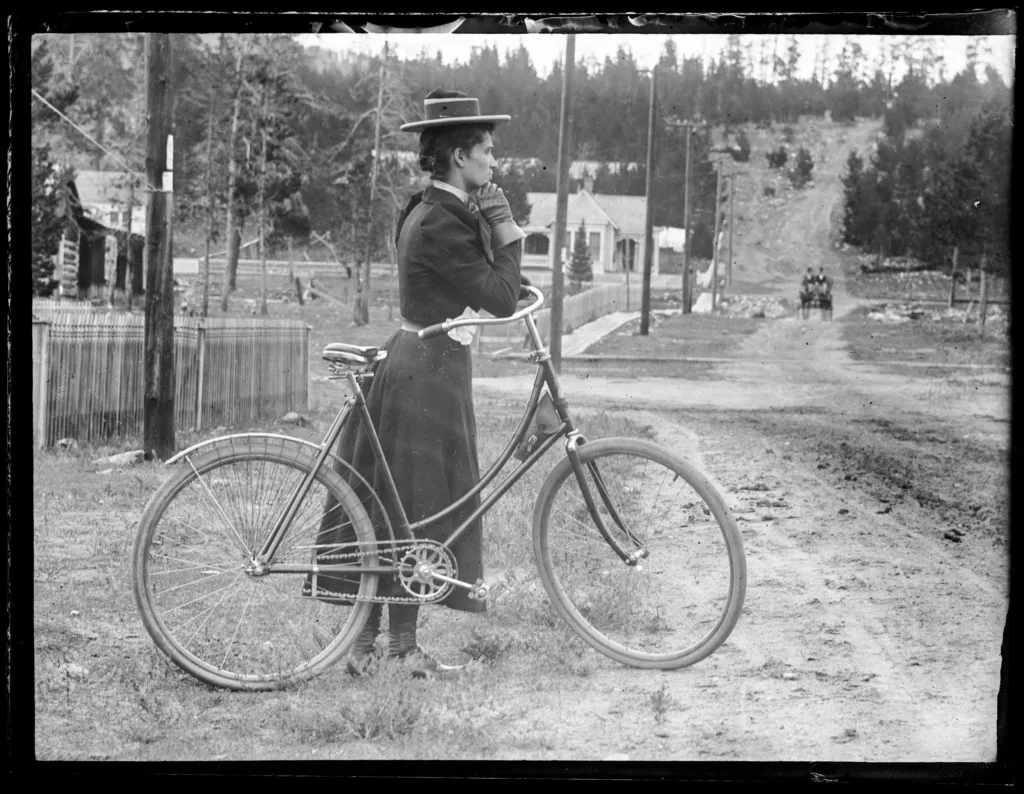
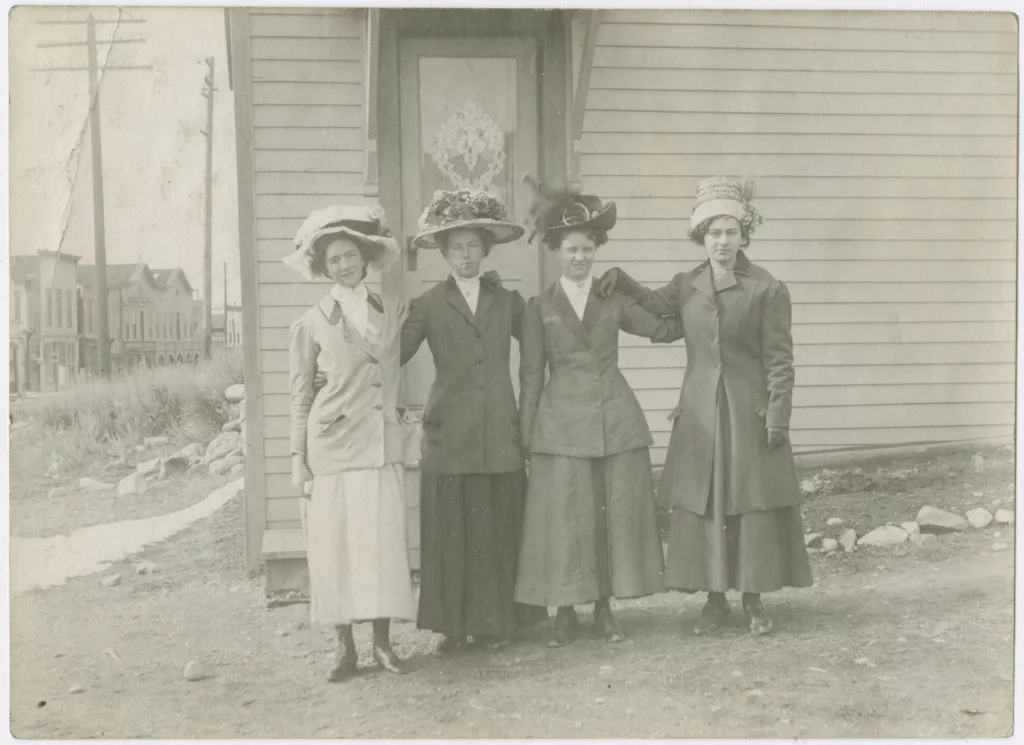
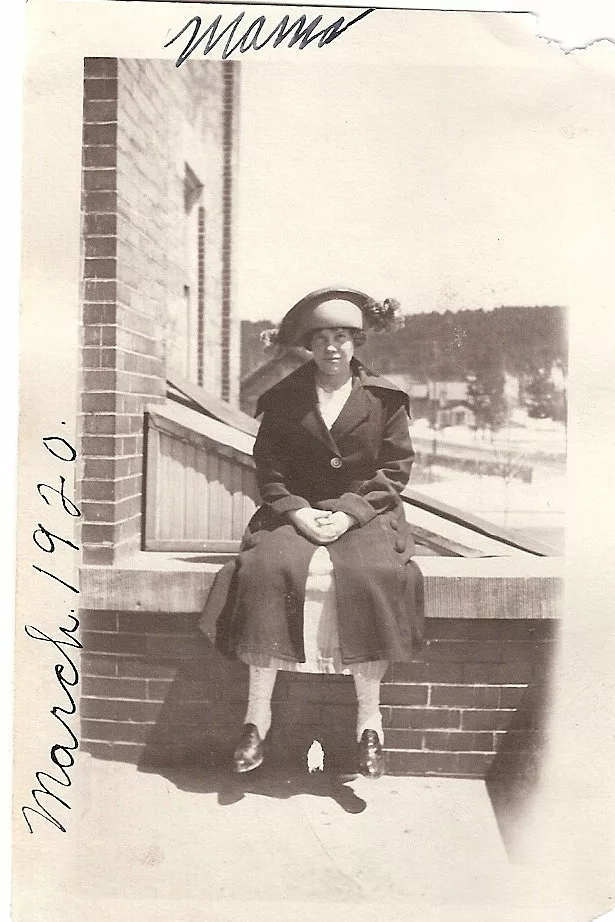
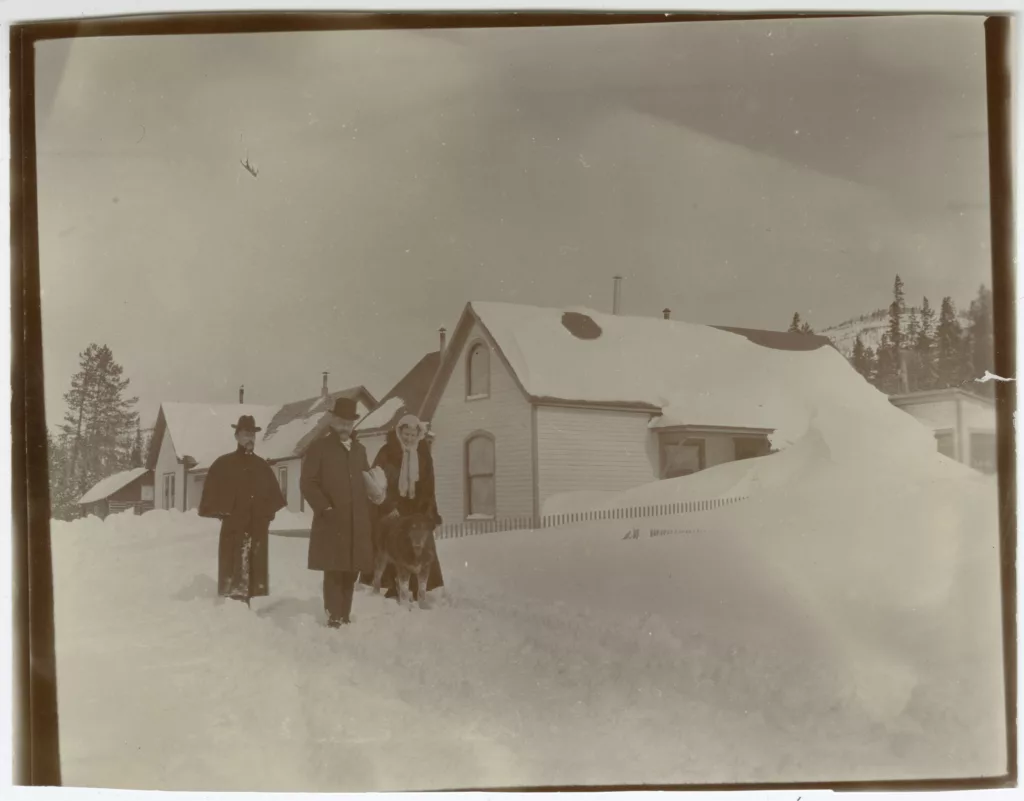
Photo re-creations
Welcome Center redesign
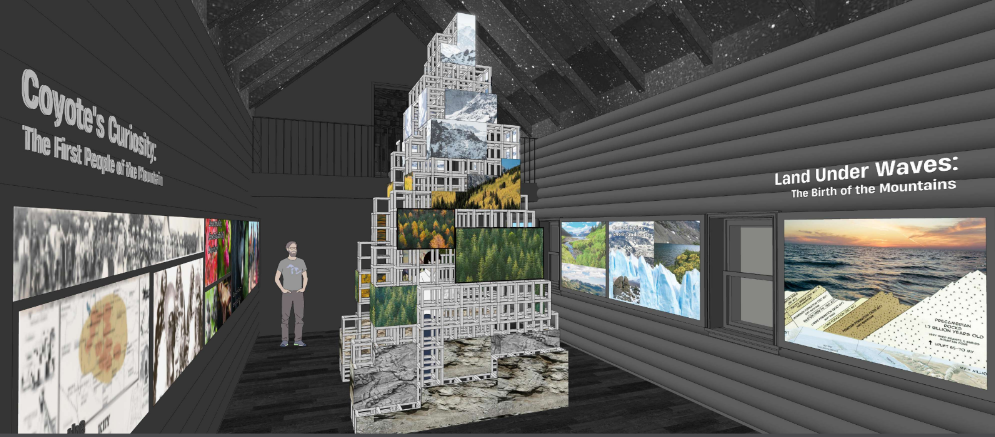
Breckenridge History is currently working with Timelooper, an immersive museum exhibit design company, to fully update the Breckenridge Welcome Center Museum. This project is in the design phase and includes the development of three new galleries to tell the story of Breckenridge from the formation of the Rocky Mountains to present day. This immersive experience will include artifact displays, interactive exhibits, and cutting-edge technology to help visitors envision their place in Breckenridge’s history and community.
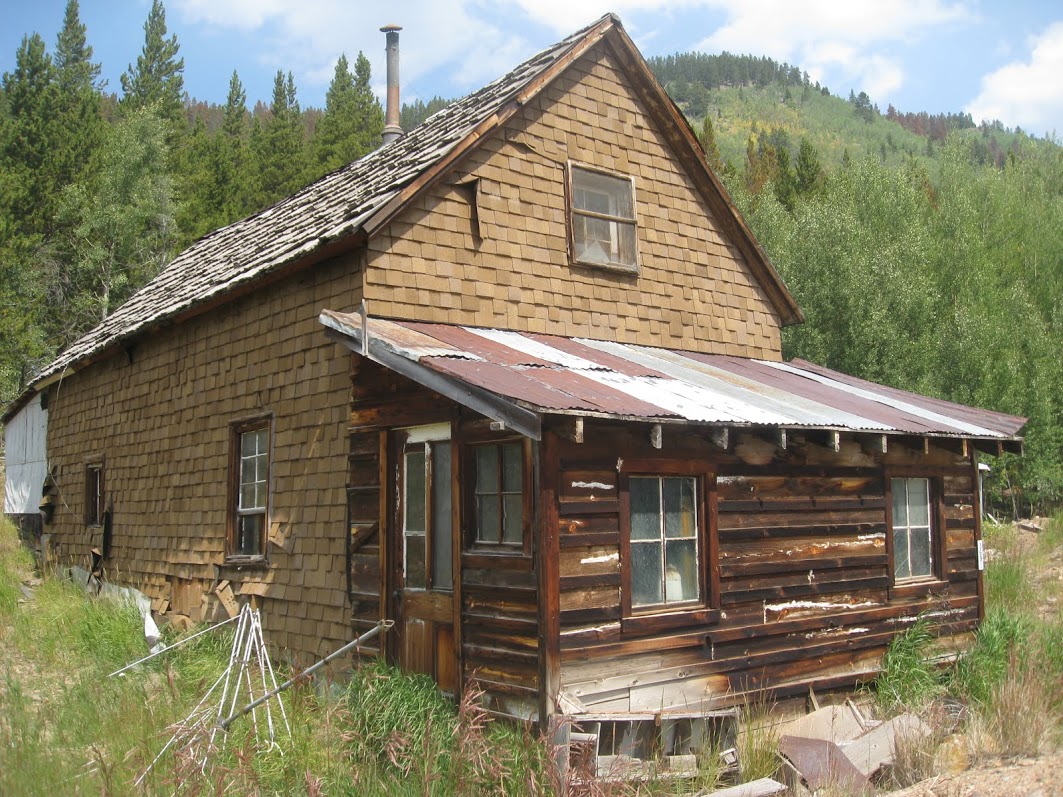
Lincoln City
Lincoln, located approximately three miles east of Breckenridge, began as a miners’ camp in 1860 but quickly evolved into one of the earliest mining towns on the west side of the Continental Divide. Although Lincoln was never formally platted or otherwise organized as a community, it remained a cohesive entity through four mining booms and busts over the course of 50 years.
The site has been identified as eligible for the National Register of Historic Places. Breckenridge History completed an Historic Structure Assessment in 2016 and an Archaeological Assessment in 2018. Preservation and interpretation is earmarked for future years.

